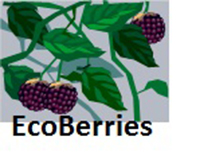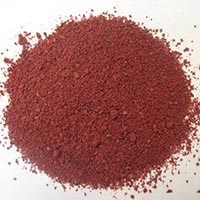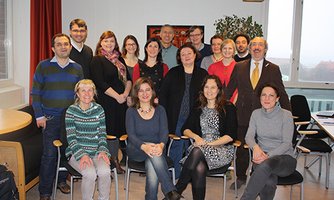EcoBerries
Ensuring quality and safety of organic food along the processing chain
Background
The future challenges facing agriculture and food production are considerable. The increased public concerns about the negative environmental and health impacts of conventional crop production have been important drivers for the increase in consumer demand for organic foods over the last 20 years.
Organic agriculture and organic food has an important role in pushing agriculture and food production towards sustainability, safety and quality. Since organic production in EU competes with both conventional food and global organic production it depends greatly on innovation, novel appropriate techniques and scientific evidence to support the quality.
Main project activities
- Identify processing solutions to enhance the safety and overall quality and nutritional value of organic berries and products
- Adaption of traditional processing methods to organic requirements
- Use of innovative packaging technologies
- Development of new sustainable processing schemes
- Dissemination and knowledge transfer to relevant stakeholders
Benefits and results
Expected societal benefits of the project
The outputs will have impact on improved sustainable production, enhanced quality of life, international development, exploitation of knowledge addressing environmental and economic challenges and the growing demand for sustainable production and agriculture and safe, high quality food products.
Well-adapted packaging solution for fresh food contributes to reduce food wastes and losses through shelf life gain, increased sale of organic berry products and more jobs. The focus of the project will be on development and adaption of processing technologies using berries as raw materials but the findings can be extrapolated to other crops. A growing organic food sector can be a driving force for social and economic development in rural communities as new business opportunities are created.
Expected outcomes, results and impact
Knowledge about the potential effects of production methods based on nutritional quality and safety aspects. Identification of packaging solutions based on bio-sourced/biodegradable packaging material to extend the shelf-life of fresh berries and minimize waste of produce.
The knowledge will have positive influence on the end product quality and stimulate producers to improve quality which will contribute to maintained/increased consumer confidence in organic products. The results will underpin creation of new profitable value chains for organic berry products. Better cooperation between researchers, farmers, processing industries, commerce and consumer organizations.
Expected long-term impact
Enhanced industrial business activities and export potential. Increased biodiversity and decreased use of chemical plant protection products with reduced risks to the environment and health. Benefits for animal welfare and rural development.
How to reach target groups
Dissemination of results through leaflets, popular papers, workshops and media contact. Main target groups will be farmers, the food industry, both large and SMEs, retailers, distributors and consumers, inhabitants in regions where there are few economic possibilities and even subsistence farming is marginal. Collaboration with European Food and Drink Federation/organizations and consumer organizations.
More about the project
Coordinator of EcoBerries
- Marie Alminger,
Chalmers University of Technology, Sweden
Mail: marie.alminger@chalmers.se



Project partners
Anders Leufvén, NOFIMA, Norway
Marco Dalla Rosa, UNIBO, University of Bologna, Italy
Mona Elena Popa, USAMVB, University of Agronomic
Science and Veterinary Medicine, Romania
Maria Saarela, VTT Ltd. Technical Research Centre of Finland, Finland
Nathalie Gontard, UMR-IATE, National Institute for Agricultural Research, France
Lilia Ahrné, SP, Technical Research Institute of Sweden, Sweden
Fahrettin Gogus, GU/Gaziantep University, Turkey
Ohran Eren, CRIFFC, Central Research Institute of Food and feed Control, Turkey

From EcoBerries' kick-off meeting in Gothenburg 2015
The project EcoBerries is funded by ERA-Net CORE Organic Plus Funding Bodies partners of the European Union’s FP7 research and innovation programme under the grant agreement No. 618107.
